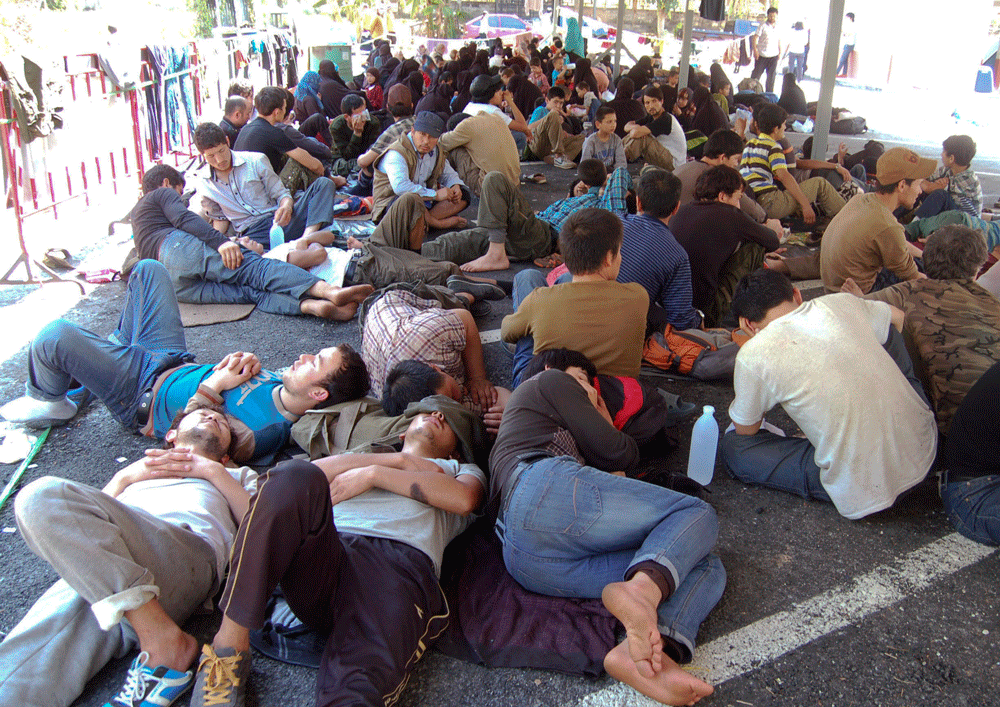The Chinese Communist Party (CCP)’s law enforcement agencies routinely track, harass, threaten and repatriate people who flee the country, many of them Turkic-speaking Uyghurs, under its SkyNet surveillance program that reaches far beyond China’s borders, using a variety of means to have them forcibly repatriated.
A video clip of a Uyghur mother and her 13-year-old daughter crying for help after being detained in Saudi Arabia and told they would be sent to China recently surfaced on social media, highlighting China’s use of pliant allies to circumvent criminal justice processes and ensure political refugees and Muslims are sent back.
The Safeguard Defenders rights group has called on the Saudi authorities to release Abla Buhelchem and her daughter Babure Miremet immediately, as well as two other Uyghur men being held without charge by Saudi police.
“We call on Saudi authorities to immediately release four Uyghurs – including a 13-year-old girl and her mother – who are at grave risk of enforced disappearance, torture and forced separation if sent back to China,” the group said in a statement on its website.
Abla Buhelchem and her daughter were detained near Mecca and told by police they would be sent back to China along with Abla Buhelchem’s ex-husband Nurmemet Rozi and Hemdulla Weli, both of whom have been detained without charge since November 2020.
Rozi and Weli were both in Saudi Arabian on pilgrimage, an act that the CCP deems “extremist” along with many other required expressions of Islamic faith, and were detained at the request of the Chinese embassy.
It said the two men were moved from the detention center where they were being held in March 2022, and their whereabouts are currently unknown.
On Friday, April 1, United Nations legal experts said the four should on no account be sent to China.
“The prohibition of refoulement is absolute and non-derogable under international human rights and refugee law,” the statement said. “States are obliged not to remove any individual from their territory when there are substantial grounds for believing that the person could be subjected to serious human rights violations in the State of destination, including, where applicable, the existence in the State concerned of a consistent pattern of gross, flagrant or mass violations of human rights.”
Norway-based Uyghur scholar Abdul Ayup, said he last heard from Abla Buhelchem on April 9.”At that time, she had already arrived at the detention center in Riyadh,” Ayup said.
“She said she was waiting for the Chinese embassy personnel. She said that she was told that she would be deported in three hours. She kept crying.”
Abduweli, a person familiar with the situation, said all four were still in detention in Saudi Arabia as of April 28. He said he had tried to warn Abla Buhelchem of the danger, and advised her to leave the country, but she wanted to stay and tell her ex-husband’s story to the international community, fearing he would disappear and be forgotten about.
“My friends who work in the Saudi government told me privately that Uyghurs shouldn’t come to Saudi Arabia.”
“As far as I know, there has been no clear accusation until now, and the officials have not explained why they were arbitrarily arrested without any documentation,” Abduweli said. “This is very strange.”
Lynn Maalouf, Amnesty International secretary-general for the Middle East and North Africa, said the forcible repatriation of the four Uyghurs was “unconscionable,” and a violation of Saudi Arabia’s obligations in international law.
“In China, they will be arbitrarily detained, persecuted, and possibly tortured,” Maalouf said.

